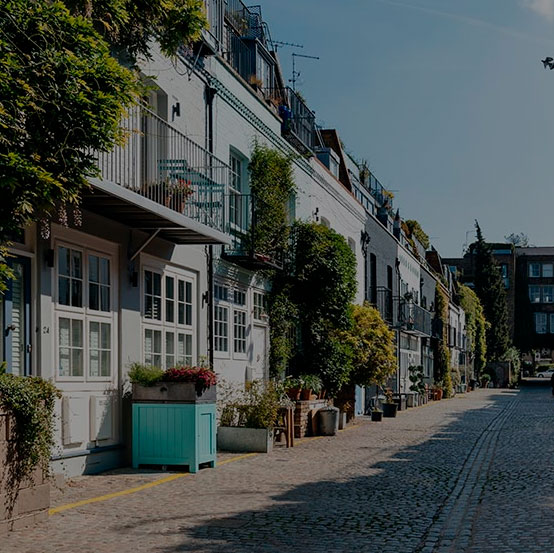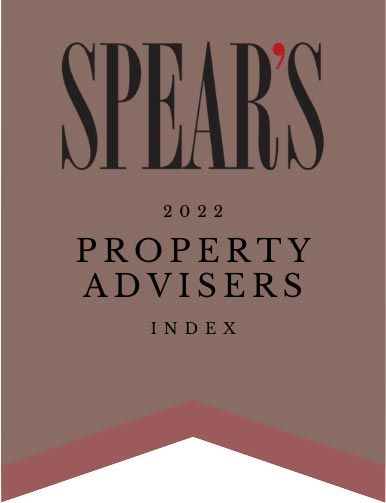Taking the first step onto the housing ladder can be tough. Although overall, wages in the UK are rising1, for many young borrower’s house prices remain prohibitively high. The increasing cost of living can make it difficult for young people to save a sufficient deposit, particularly if they do not live at home.
That’s why so many rely on the help and support of their relatives when buying their first property. And one way they can do this is by using a type of home loan called a guarantor mortgage.
What is a guarantor mortgage?
With a normal mortgage, the borrower alone is responsible for ensuring that they keep up with their monthly repayments.
However, as the name suggests, a guarantor mortgage means there is a guarantor in place who is committed to stepping in and covering those monthly repayments should the borrower fall into financial difficulties and miss a payment or two.
Acting as a guarantor for your child or grandchild could make a big difference to their chances of being able to buy their dream first home.
Borrow more with a guarantor mortgage
The big selling point of guarantor mortgages is that they often allow the borrower to access larger loans than if they borrowed alone.
Typically, a mortgage lender will look solely at the borrower’s financial position. What is their income? What are their outgoings? From here they arrive at a figure that they are comfortable lending. Changes to the way lenders must assess affordability a couple of years ago have meant that they need to be a little tougher when looking at borrowers, and this has made it challenging for some would-be buyers to borrow enough to cover the purchase.
Even if their salary is soon expected to rise such as those with a strict career progression, for example, solicitors, junior doctors or those on a graduate scheme, they may be subject to strict income multiples which prohibits them from borrowing a larger amount.
However, with a guarantor mortgage, the lender doesn’t just look at the borrower when assessing what’s affordable. They will also take the finances of the guarantor into account.
This can make a significant difference to the amount that the borrower can obtain, as the guarantor is usually in a more comfortable financial situation. As a result, lenders are generally happier to lend larger amounts as they are confident that the guarantor will be able to meet the repayments for a larger loan, even if the borrower falls into difficulties.
The responsibilities of a guarantor
Obviously, agreeing to be a guarantor for a loved one’s home loan is a big step.
Yes, you are helping them to get the loan they need to purchase a property, but you are also making a commitment to meet those loan repayments should issues arise. As such, it’s something you need to think about carefully.
You may use your savings or your own property as security against the loan.
It can also be a long-term commitment until your child is in a position to take on a home loan on their own, although many relatives will not remain a guarantor for more than around 5 years.
Guarantor mortgages and the rise of the Bank of Mum and Dad
Property prices have grown incredibly over the last 25 years. According to the Nationwide house price index, the average property price stood at £50,128 in 1993. Today the average property in the UK is worth more than £211,000.
While property prices have rocketed, wages have not risen to the same extent, leaving would-be first-time buyers in a difficult position. Little wonder that the age of the average first time buyer has steadily crept up, to its current point of 30 years of age.
This is why the so-called ‘Bank of Mum and Dad’ has become so important in the UK mortgage market2. A huge number of housing transactions now involve some form of financial assistance from parents or grandparents. In fact, according to research from Legal & General, in 2016 the ‘Bank of Mum and Dad’ supported the purchase of £77 billion of property, with typical contributions coming to around £17,500.
While this help often takes the form of a gift towards a deposit, many parents and grandparents are happier to help by acting as a guarantor as this does not mean needing to hand over thousands of pounds in a lump sum. Some lenders, however, may require the guarantors to provide proof that they have sought both legal and tax advice and understand the risks involved before accepting their applications.
The role of a specialist broker
It’s important to note that guarantor mortgages are a separate subset of mortgage products – you can’t just find a rate you like from your local bank and ask to have it on a guarantor basis.
While there is undoubtedly a demand for guarantor mortgages, the number of lenders who actually offer one has fallen in recent years. This has made it difficult for individual borrowers to find the home loan that meets their needs.
That’s where a specialist broker like Large Mortgage Loans comes in. As independent intermediaries, we have access to all of the lenders who will consider a guarantor case, including those who only deal with brokers.
What’s more, as we have a detailed understanding of their criteria and what they look for from a broker, we can advise you on which lenders are best placed to help you buy that property and which products best meet your requirements.




















